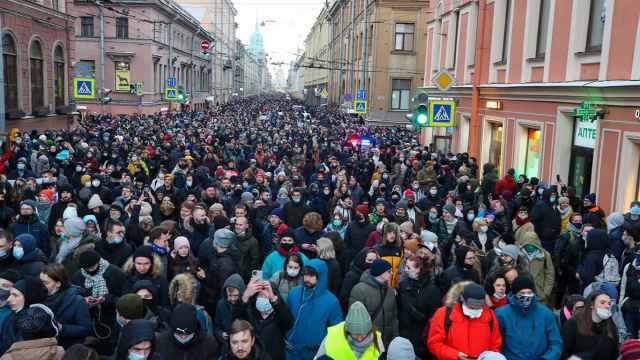On Monday, Russian opposition figure Alexei Navalny released video of a phone call in which he says he tricked one of the FSB agents behind his poisoning into admitting to the act and sharing new details about the failed operation.
A joint media investigation led by Bellingcat last week identified the key FSB operatives who poisoned Navalny with the Soviet-era nerve agent Novichok, one of whom was Konstantin Kudryavtsev.
In his phone call with a man identified as Kudryavtsev, Navalny pretended to be a senior official preparing a report on the FSB's operation. He not only extracted confirmation that the operation took place and confirmed names of key players, but also revealed new details — including that most of the nerve agent was applied on Navalny's underwear. More specifically, the inside of the underwear in the crotch area, as Kudryavtsev clarified during the 49-minute phone call.
The video, which was viewed more than 12 million times in less than 24 hours, sparked countless memes on the Russian internet — particularly over the pivotal role that Navalny's underwear now plays in the poisoning.
Navalny himself has taken a comic approach to his near-death experience, sharing some of the memes on Twitter and filming TikToks to make light of the situation.
Here are some of the best memes:
"FSB: Expectation vs. reality."
"An FSB operative taking Navalny's underwear for processing."
"A member of the FSB team that poisoned Alexei Navalny said that the poison was applied to the underwear."
"When you're reading more Navalny news."
"An emergency meeting of the Security Council"
...it's me
"Happy Poisonous Underpants Day!"
This year's Pantone color: The navy-blue color of Navalny's underwear.
"POISON THE PANTIES!!!"
During today's discussion of what went wrong...
"What's happening in the Kremlin right now."
A Message from The Moscow Times:
Dear readers,
We are facing unprecedented challenges. Russia's Prosecutor General's Office has designated The Moscow Times as an "undesirable" organization, criminalizing our work and putting our staff at risk of prosecution. This follows our earlier unjust labeling as a "foreign agent."
These actions are direct attempts to silence independent journalism in Russia. The authorities claim our work "discredits the decisions of the Russian leadership." We see things differently: we strive to provide accurate, unbiased reporting on Russia.
We, the journalists of The Moscow Times, refuse to be silenced. But to continue our work, we need your help.
Your support, no matter how small, makes a world of difference. If you can, please support us monthly starting from just $2. It's quick to set up, and every contribution makes a significant impact.
By supporting The Moscow Times, you're defending open, independent journalism in the face of repression. Thank you for standing with us.
Remind me later.






